Strong El Nino Affects Southern Africa: How Creating Landscape and Farmer Resiliency to Shocks is Going to Help us all Keep Moving
Year after year we realize that the extreme weather patterns are making it hard for farmers to make ends meet from their landscapes.
In a report on Southern Africa the main areas of concern that are being hard hit are Zimbabwe, southern Malawi, Southern and central Mozambique and southern Madagascar. These areas will be in deficit of food supplies and its anticipated to get to early 2025.
I am in western Zimbabwe, Hwange where I am engaged with communal farmers working on regenerative projects together. We are currently in an unprecedented dry spell in the midst of a growing season! Reports show that a great population will be in lack of food this year in our country, quoting about 2.8 million people. The rains delayed, the temperatures were soaring, wildlife, people and livestock were all desperate for the smallest shower we could get from the skies. We have a very short growing season, that starts in mid November to mid-March, and this 2023/2024 we have only had precipitation for 9 days, and a long dry spell, of 15 days (and it looks like we are still counting).
Most of the farmers where we are working are in an already challenging environment, we are located in rainfall region 4&5 (barely enough rainfall per year anyways) and on mostly Kalahari sandy soil areas, that easily lose moisture if there are long dry spells and leach all the nutrients should there be excessive downpours of rain. It is unfortunate that we are living in the times where both events are a norm. As such, every small effort to create resiliency on the landscape, crop lands and the broader ecosystem becomes one of the greatest priorities of our time.
All regenerative efforts like Agroecology, organic farming, permaculture, and so on are so important to relieve stress in events like this. Regeneration in at the core meant to help farmers manage the complexity that is involved with living systems work. The odds are never predictable, and with the ever advancing climate crisis- the shocks are almost inevitable. Our networks are doing the very best moves to pressure the powers that be to make policies and plans that will finally see us moving ahead with confronting climate emergency. While this effort is important, we also celebrate the brave efforts of being able to work at policy levels while building strong farmer movements to create capacity to small holder farmers across the region for such times.
In our region, I have witnessed in the last week, chances of total crop failure rising to nearly 90 percent. If it doesn’t rain in the next few days, for those on sandy soils, it’s game over. Those that did not apply ecological principles on their plots, have already counted their losses. The farmers that used livestock manure, mixed crop still have a spark of hope that some legumes and smaller traditional grains might wake up at the smell of a light shower. And so the wait continues.
Below are some crop field photos taken on 6th February 2024:
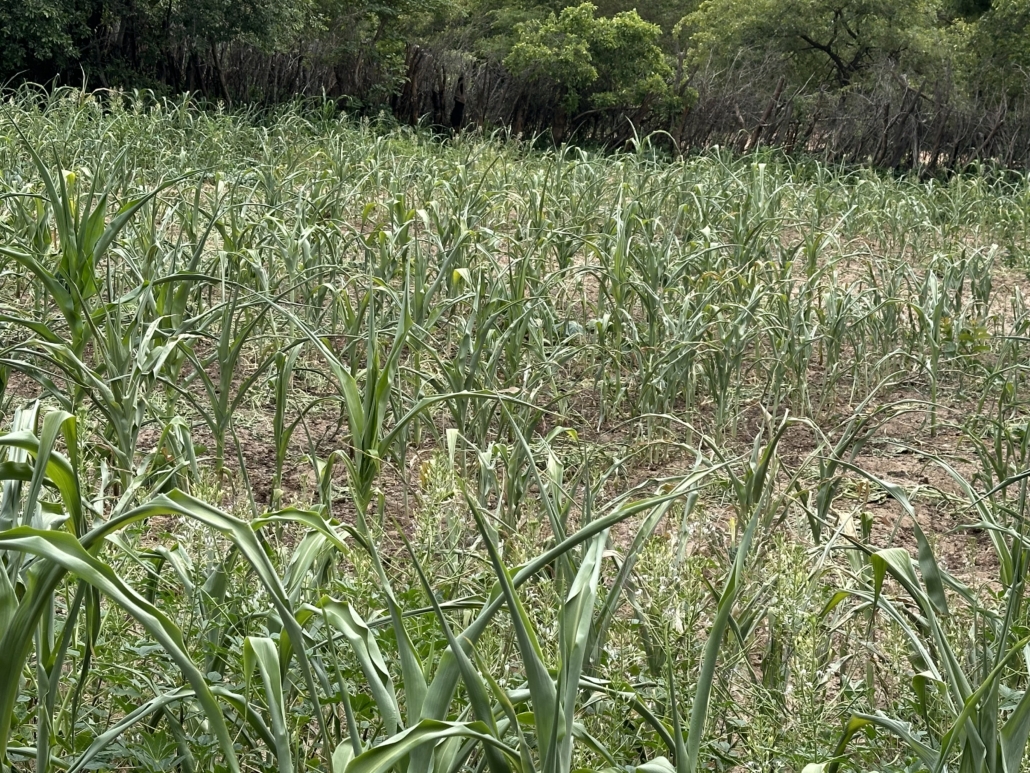
A devastated crop- in scorching heat, and a loss that will probably never bounce back should the rains delay further. Besides, it’s past fruiting season and the plants are stunted in growth.
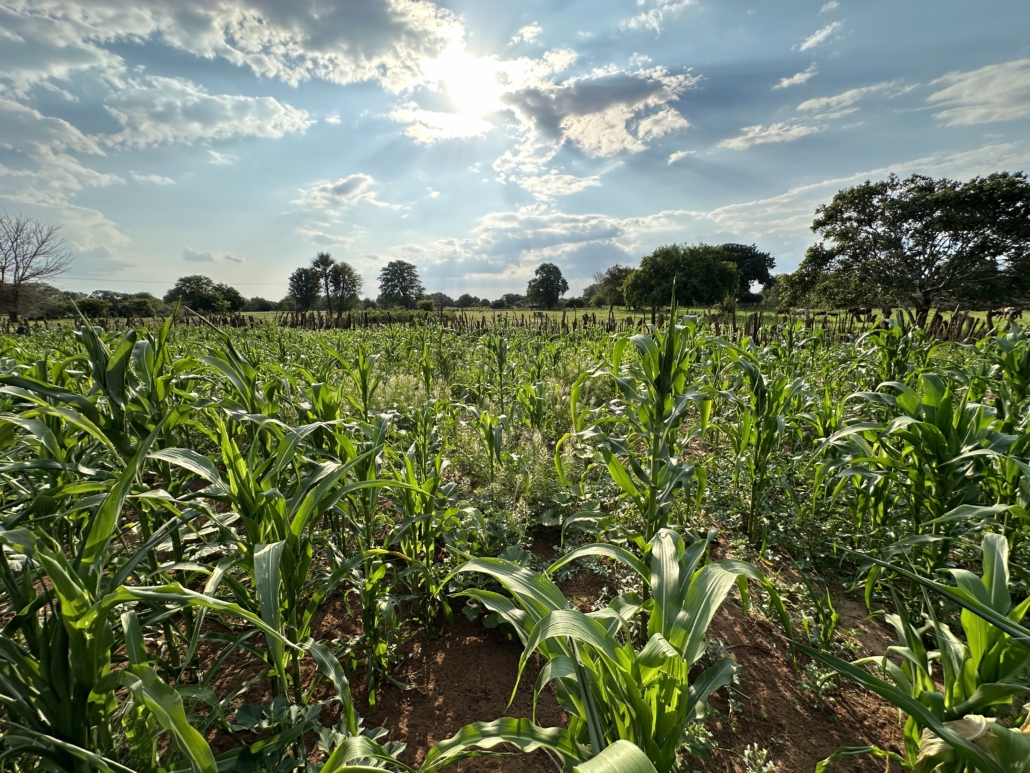
A hopeful crop, albeit late for fruiting, the color and strength shows that some ecological principles and early planting can buy a bit of time and give a farmer the smallest chance to get a harvest.
Grazing lands are what will carry most of the households, that is if farmers continue to hold strong on the plans we created. Otherwise, in panic some farmers are letting their animals wander off to their prime dry season paddocks in a bid to speed up great condition. However, they do not realize that this action is at the expense of their animals condition in the face of a longer and harder non growing (or dry) season. Livestock becomes an important back up plan for the community in times like this, because one animal can be sold to buy staple food from neighboring communities with better soils. Some legumes will survive and balance up local nutrition.
Below are some photos of the landscape comparisons. Pictures taken on 06 Feb, 2024.
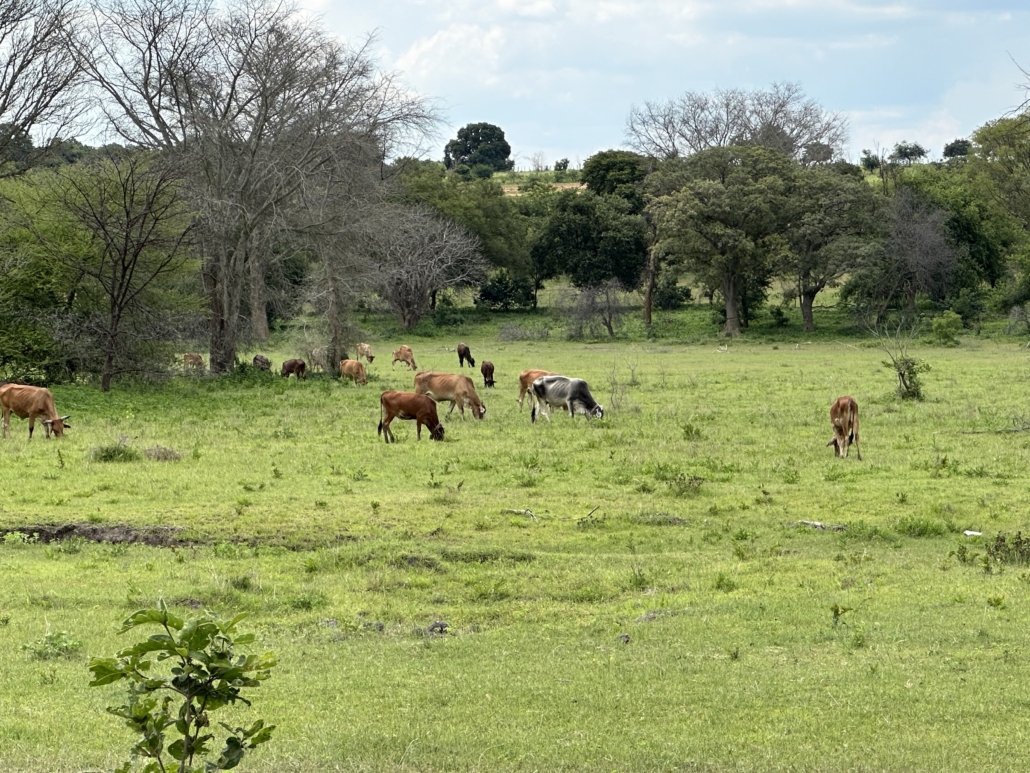
A prime paddock that has been exposed to consistent grazing, not recovering, will be overgrazed and will not be able to carry any livestock when needed the most (in the 8 months of dry season).
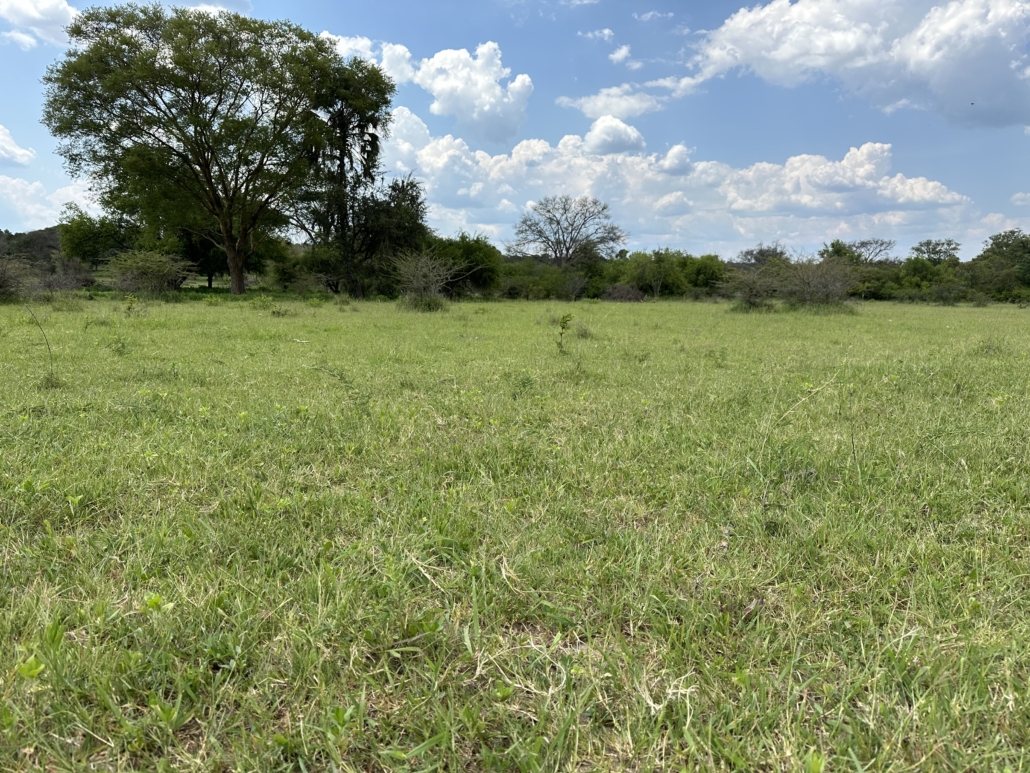
A sufficiently grazed paddock, farmers have pulled out livestock for its recovery. Once it rains, a little bit of moisture will give them a chance to regrow forage.
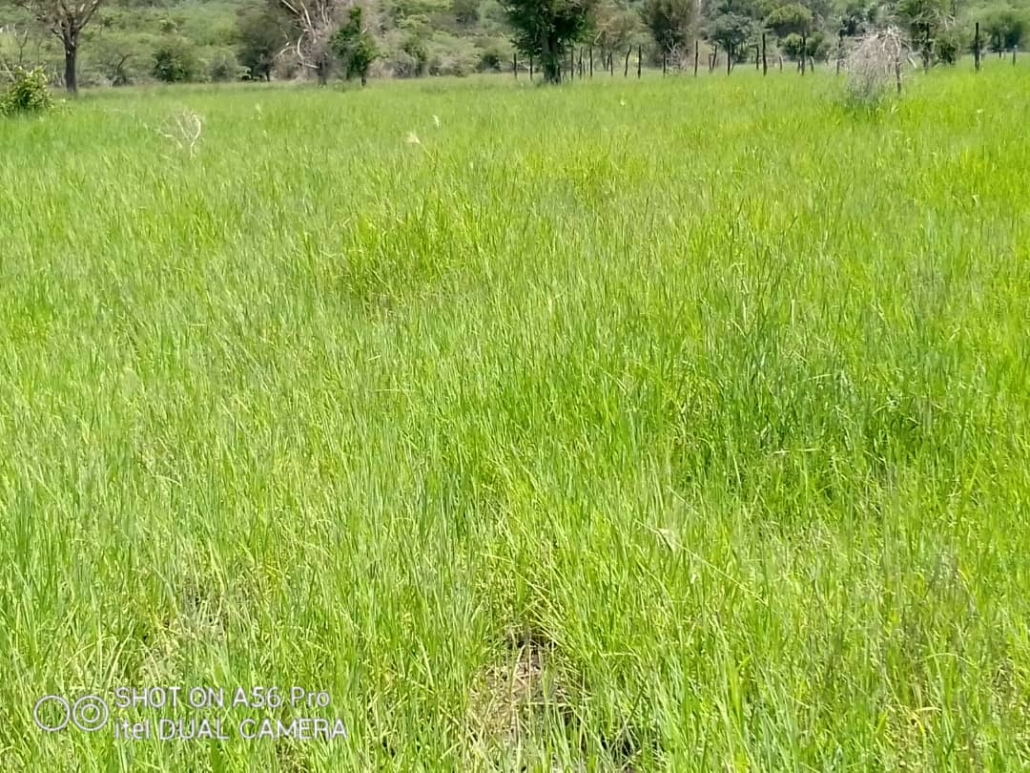
A paddock that has had about 2 months without animals in it, growth could have been much taller but rainfall has been so limited. The farmers will still have something to fall back on for their livestock.

